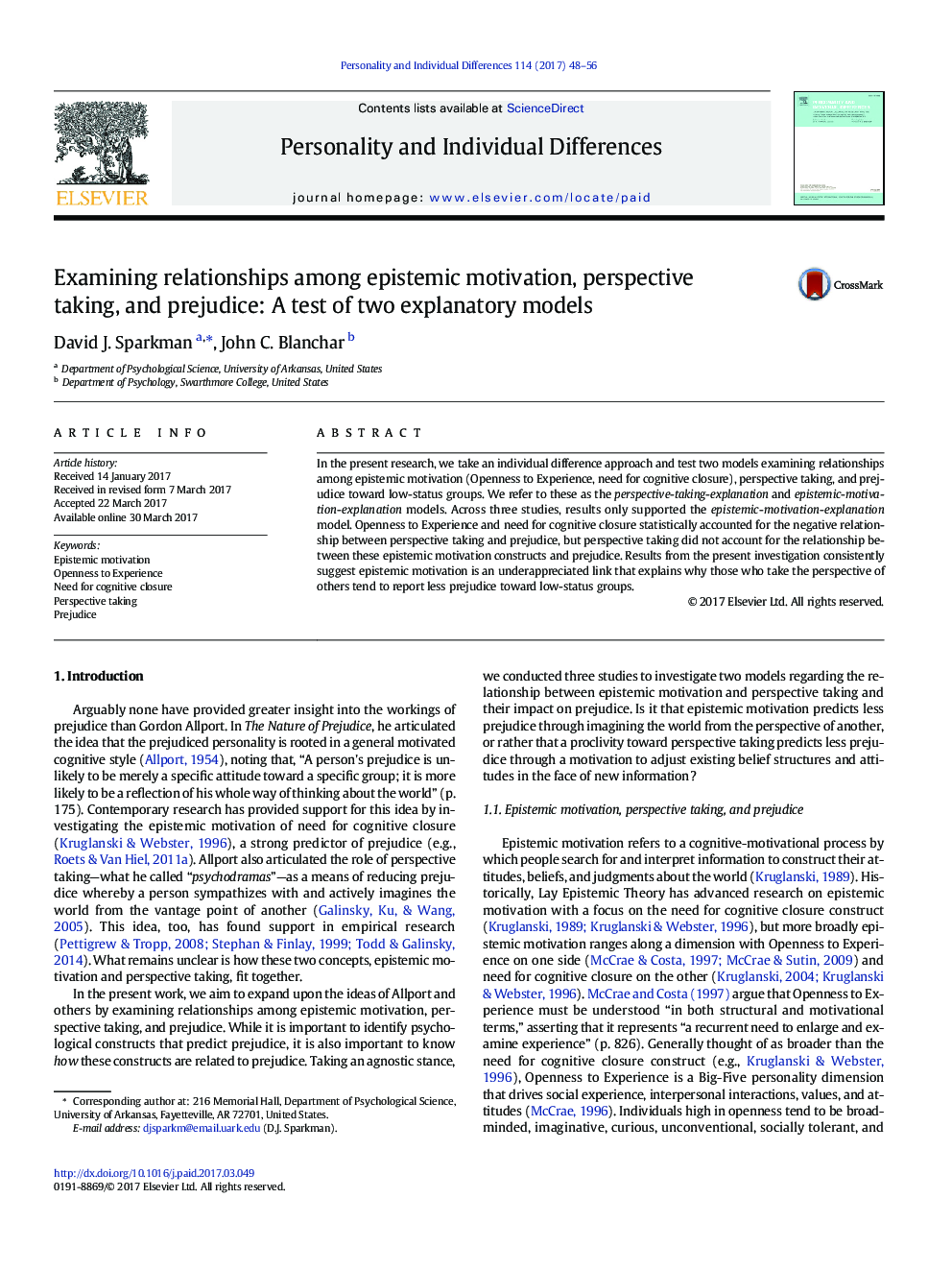| Article ID | Journal | Published Year | Pages | File Type |
|---|---|---|---|---|
| 5035876 | Personality and Individual Differences | 2017 | 9 Pages |
â¢Epistemic motivation (EM), perspective taking (PT), and prejudice were examined.â¢EM fully accounted for the negative relationship between PT and prejudice.â¢PT did not account for the relationship between epistemic motivation and prejudice.â¢EM had a direct effect on prejudice only.â¢Results suggest EM is a novel account of the long-studied PT-prejudice relationship.
In the present research, we take an individual difference approach and test two models examining relationships among epistemic motivation (Openness to Experience, need for cognitive closure), perspective taking, and prejudice toward low-status groups. We refer to these as the perspective-taking-explanation and epistemic-motivation-explanation models. Across three studies, results only supported the epistemic-motivation-explanation model. Openness to Experience and need for cognitive closure statistically accounted for the negative relationship between perspective taking and prejudice, but perspective taking did not account for the relationship between these epistemic motivation constructs and prejudice. Results from the present investigation consistently suggest epistemic motivation is an underappreciated link that explains why those who take the perspective of others tend to report less prejudice toward low-status groups.
